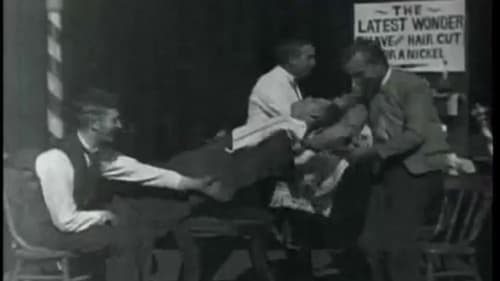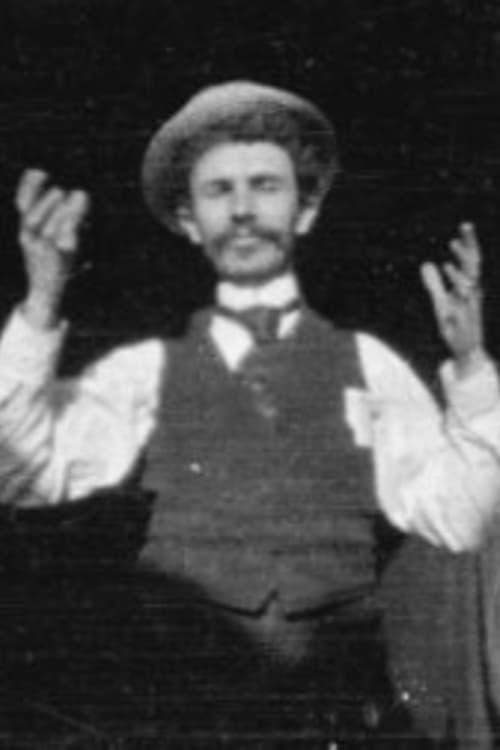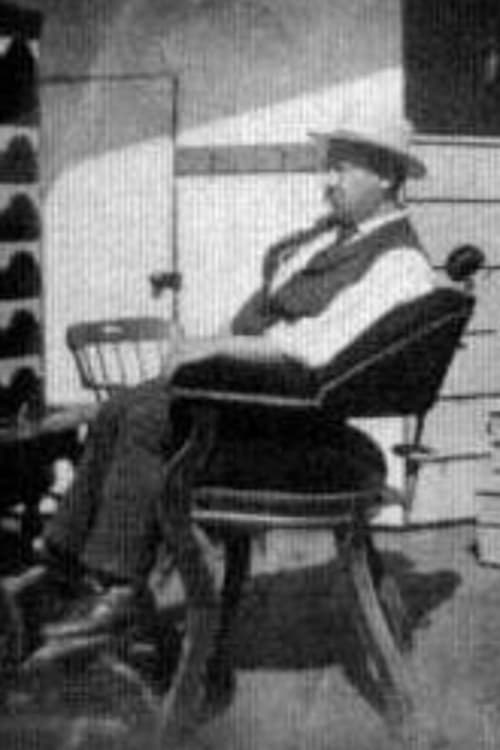The Hornbacker-Murphy Fight (1894)
장르 :
상영시간 : 1분
연출 : William K.L. Dickson, William Heise
시놉시스
A referee and five fans (including a waiter in his apron) look on as two young men box. The dark-haired, slightly taller boxer throws a right and the light-haired smaller one goes down; but he's up before the referee starts counting. After the knockdown, the boxers mostly hit each other's gloves. The fans, at least one of whom is sitting inside the ring, show no animation. They're all men, dressed in a range of late 19th-century garb.

James J. Corbett and Peter Courtney meet in a boxing exhibition.

A scene from Charles Hoyt's 'A Milk White Flag': A brass band marches out, led by bandmaster Steele Ayers. When Ayers reaches his position, he turns around and directs the musicians as they take up their own positions.

From Edison films catalog: One of the most peculiar customs of the Sioux Tribe is here shown, the dancers being genuine Sioux Indians, in full war paint and war costumes. 40 feet. 7.50. According to Edison film historian C. Musser, this film and others shot on the same day (see also Buffalo dance) featured Native American Indian dancers from Buffalo Bill's Wild West show, and represent the American Indian's first appearance before a motion picture camera.

A charming representation of the Mikado dance by three beautiful Japanese ladies in full costume. Very effective when colored.

Hadji Cheriff, a performer known for a variety of unusual abilities, demonstrates part of his act in the Thomas Edison studio. He has a large knife in his hand at the opening of the act. He then hurls the knife away and begins a rapid series of dance-like motions, executing numerous cartwheels and whirling movements.

“Interior of Barber Shop. Man comes in, takes off his coat; sits down, smokes; is handed a paper by attendant, who points out a joke; both laugh. Meantime the man in the chair is shaved and has his hair cut. Very funny.” (Edison's Latest Wonders, 1894)

Two gamecocks are fighting inside a wire cage, while two spectators look on in the background. The two men agree to make a bet on the outcome. One of them shows his money to the other, who is commenting on the fight.

Lee Martin, one of the cowboy stars in 'Buffalo Bill's Wild West', rides a bronco as a crowd looks on. While the horse is trying to throw Martin off its back, another cowboy stands on top of a fence rail and occasionally fires his six-shooter, to spur on both horse and rider.

“A scene representing Southern plantation life before the war. A jig and a breakdown by three colored boys.”

"Firemen in working uniform, rubber coats, helmets, and boots. Thrilling rescue from burning building. Smoke effects are fine." - from the Edison Catalog

Luis Martinetti, a contortionist suspended from acrobatic flying rings, contorts himself for about thirty seconds. This is one of the first films made for Edison's kinetoscopes.

Eugen Sandow, who claims to be the strongest man in the world, appears in the Edison Company's film studio.

Long before Hollywood started painting white men red and dressing them as 'Injuns' Edison's company was using the genuine article! Featuring for what is believed to be the Native Americans first appearance before a motion picture camera 'Buffalo Dance' features genuine members of the Sioux Tribe dressed in full war paint and costume! The dancers are believed to be veteran members of Buffalo Bill's Wild West Show. Filmed again at the Black Maria studios by both Dickson and Heise the 'Buffalo Dance' warriors were named as Hair Coat, Parts His Hair and Last Horse. Its quite strange seeing these movies at first they all stand around waiting to begin and as they start some of the dancers look at the camera in an almost sad way at having lost their way of life.

The pursuit of Hop Lee by an irate policeman.

Annabelle (Whitford) Moore performs one of her popular dances. For this performance, her costume has a pair of wings attached to her back, to suggest a butterfly. As she dances, she uses her long, flowing skirts to create visual patterns.

"A glove contest between trained cats. A very comical and amusing subject, and is sure to create a great laugh." (by Edison Films)

Experimental film fragment made with the Edison-Dickson-Heise experimental horizontal-feed kinetograph camera and viewer, using 3/4-inch wide film.

King of the slack wire. His daring feats of balancing as he performs his thrilling feats in midair show that he is perfectly at home.

William K.L. Dickson and William Heise shake hands in this early experimental film.

Annie Oakley was probably the most famous marksman/woman in the world when this short clip was produced in Edison's Black Maria studio in West Orange, New Jersey. Barely five feet tall, Annie was always associated with the wild west, although she was born in 1860 as Phoebe Ann Oakley Mozee (or Moses)in Darke County, Ohio. Nevertheless, she was a staple in the Buffalo Bill Wild West Show and similar wild west companies. Because of her diminutive stature, she was billed as "Little Sure Shot." The man assisting her is this appearance is probably her husband, Frank E. Butler. Annie had outshot Butler (a famous dead-eye marksman himself) in a shooting contest in the 1880's. Instead of nursing his bruised ego because he had been throughly outgunned by a woman, Butler fell in love, married Little Sure Shot, and became her manager.





